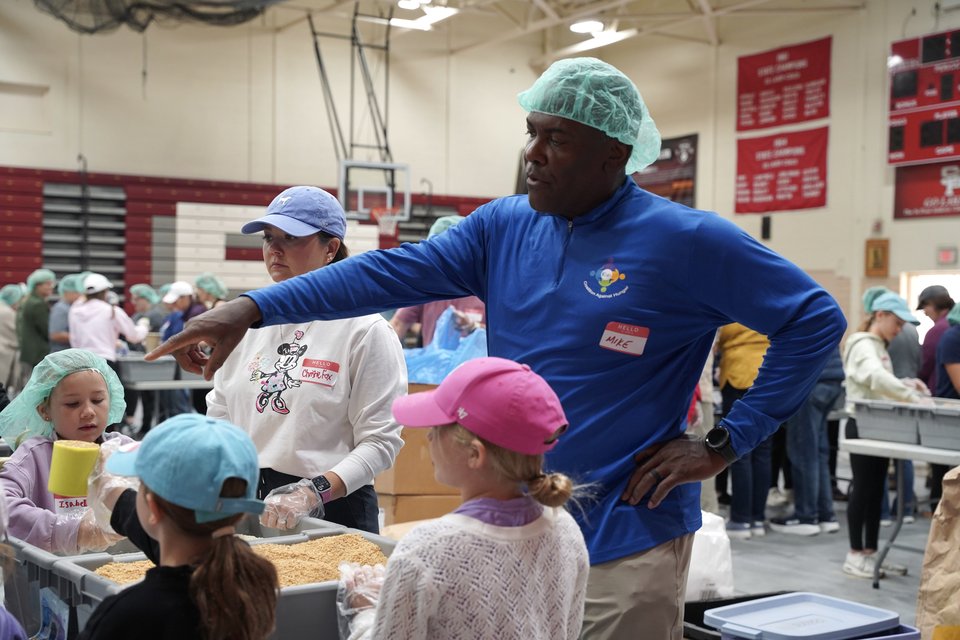After natural disasters strike southeastern U.S., local Catholics pitch in to help by volunteering, donating emergency supplies
ROYAL OAK — Catholics in the Archdiocese of Detroit have rallied to take a boots-on-the-ground approach to assisting victims impacted and displaced by Hurricane Helene 500 miles away in the southeast United States.
The Category 4 hurricane made landfall Sept. 24 and continued to wreak devastation until Sept. 28, bringing several months' worth of rain, flooding, high winds and storm surge and causing widespread damage in North Carolina, Tennessee, Georgia, Florida, South Carolina and Virginia, traveling inland to mountain regions.
At least 221 people have been reported dead, with numbers expected to rise as disaster efforts unfold. Earlier this week, another hurricane, Milton, slammed into western Florida, killing at least 16 others.
In the days following the disaster, Shrine Grade School in Royal Oak organized efforts to collect thousands of donations of personal hygiene and baby items for the Diocese of Knoxville, Tenn. Shrine principal Scott Wisniewski and fifth-grade religion teacher John LaCroix drove south Oct. 10 to deliver the donations in person.
As the school day commenced on Thursday, Shrine students, from pre-kindergarten through fifth grade, took shifts organized by grade to head down to the cafeteria and load a U-Haul truck with donations, collected by the school, parish and community. As the truck was being loaded, more people drove up to drop off last-minute donations and road trip snacks for Wisniewski and LaCroix’s 9.5-hour drive.
LaCroix said he was watching the news closely and felt convicted that the school should brainstorm a way to help. Along with fourth-grade religion teacher Jane Frechette, Lacroix approached Wisniewski and assistant principal Erika Zwolinksi early last week to discuss a donation drive.
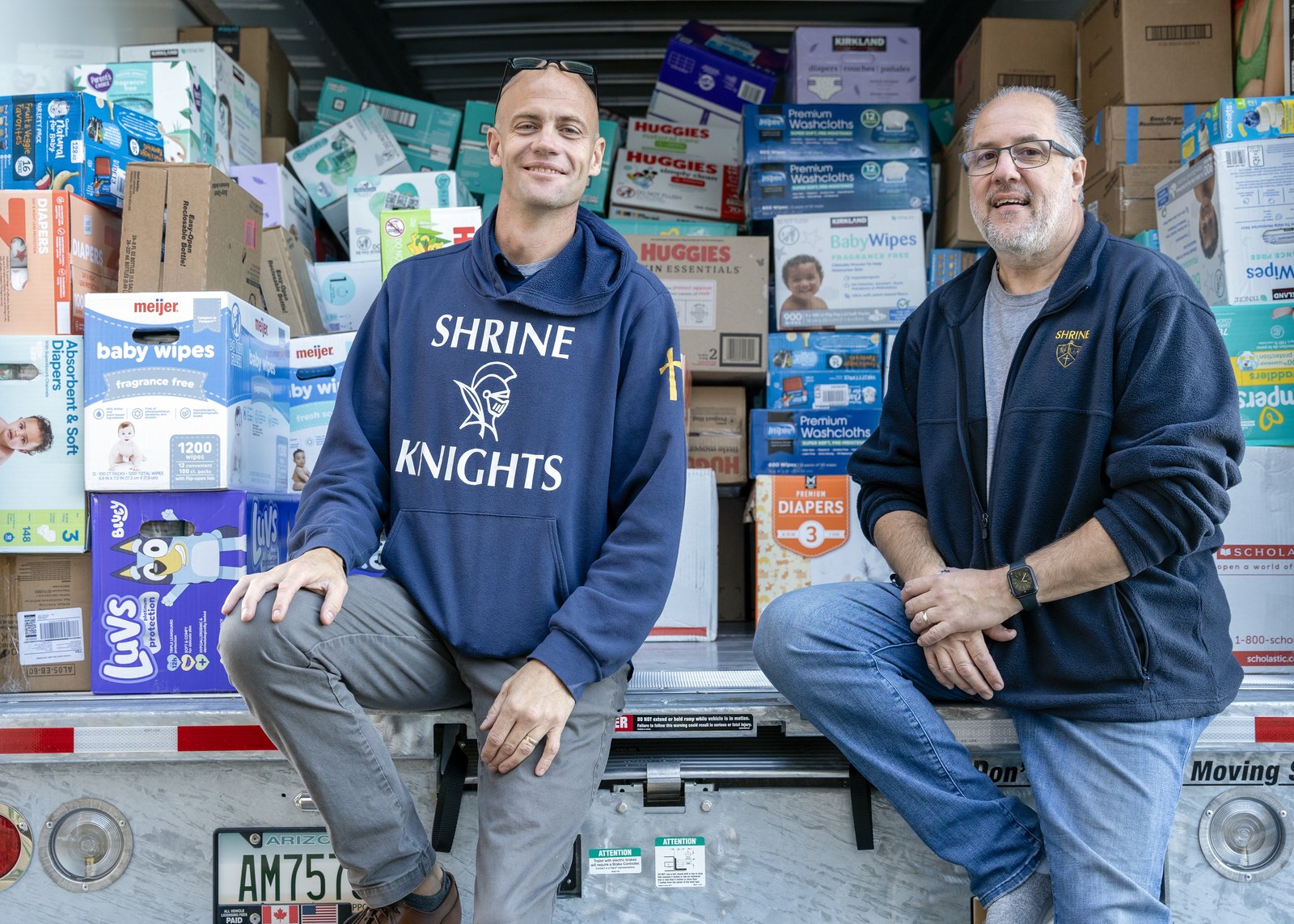
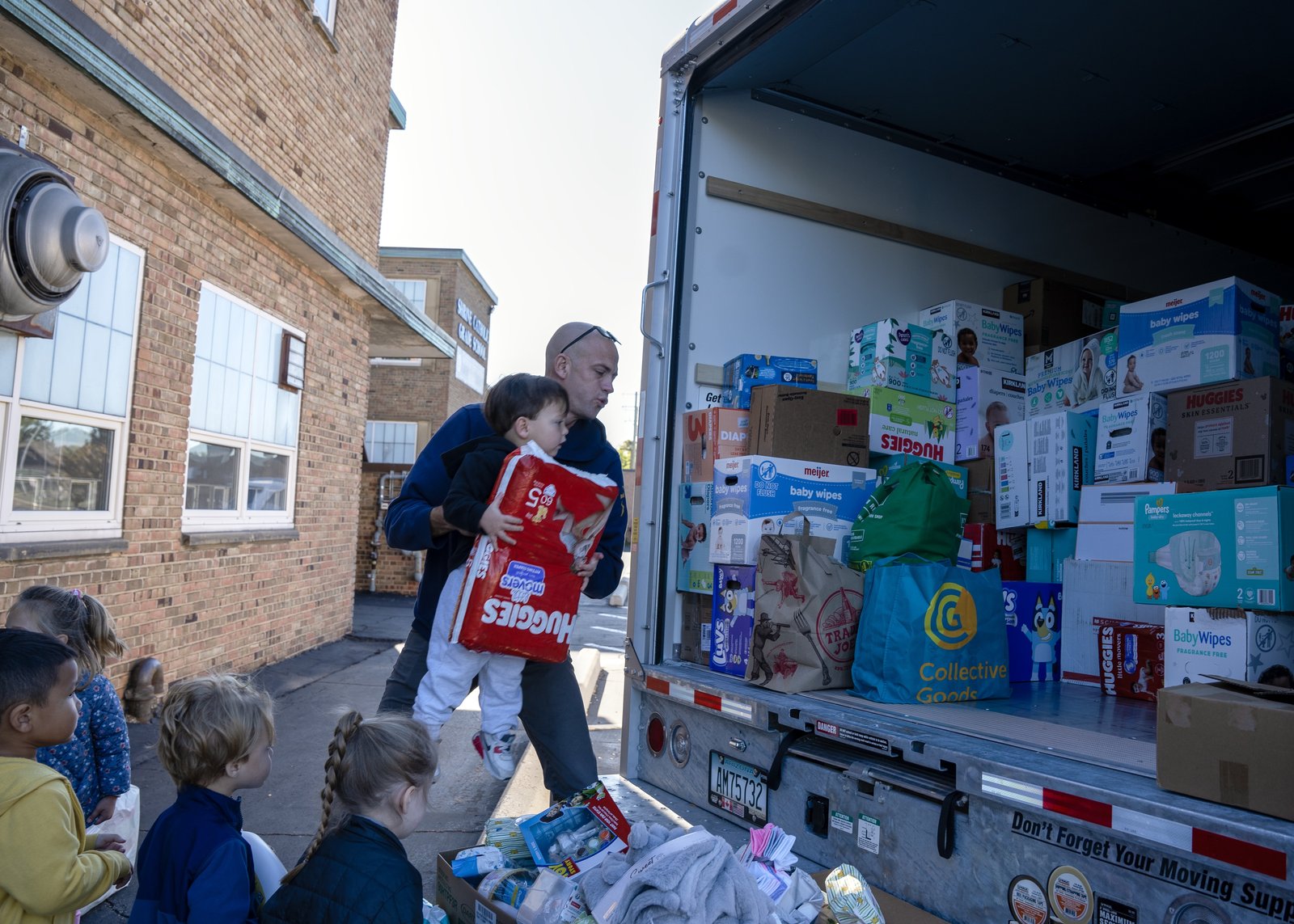
By Wednesday, everyone was on board, and by Thursday, the school sent out fliers. On Monday morning, donations began rolling, and — exactly a week after reaching out to the community — Wisniewski and LaCroix took off from the Shrine parking lot with the U-Haul destined for St. Mary’s Parish in Johnsonville, Tenn., one of the staging grounds for people impacted by the hurricane in the southeast.
“Our rector, Fr. John Bettin (of the National Shrine of the Little Flower Basilica), really liked the idea of us taking a more hands-on approach, and so he was like, ‘If you are willing to drive this stuff down there, then let's make that happen,’” Wisniewski explained.
Wisniewski added the community outpouring was immediate and astounding.
“We have a dad who donated us the money for the truck; we have moms who are packing food and sandwiches for the drive down; we have grandparents who are knitting hats for babies,” Wisniewski said. “One of our preschool teachers’ aunt makes burp clothes and baby blankets and they just dropped off an entire bag of handmade burp clothes and baby blankets for the children down in Knoxville.”
LaCroix and Wisniewski emphasized the importance of the students handling the donations and being directly involved as a way to expose them to hands-on service learning.
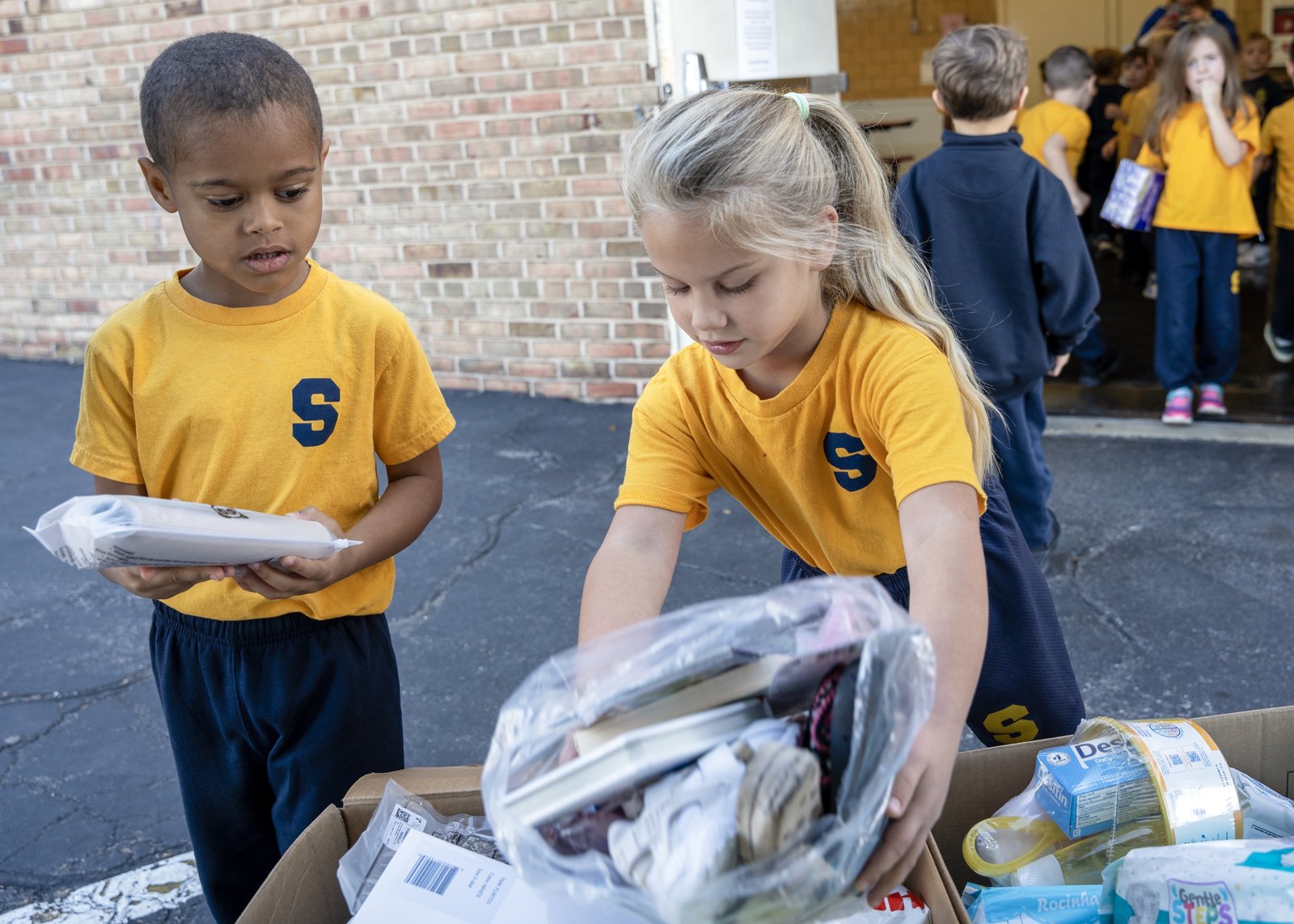
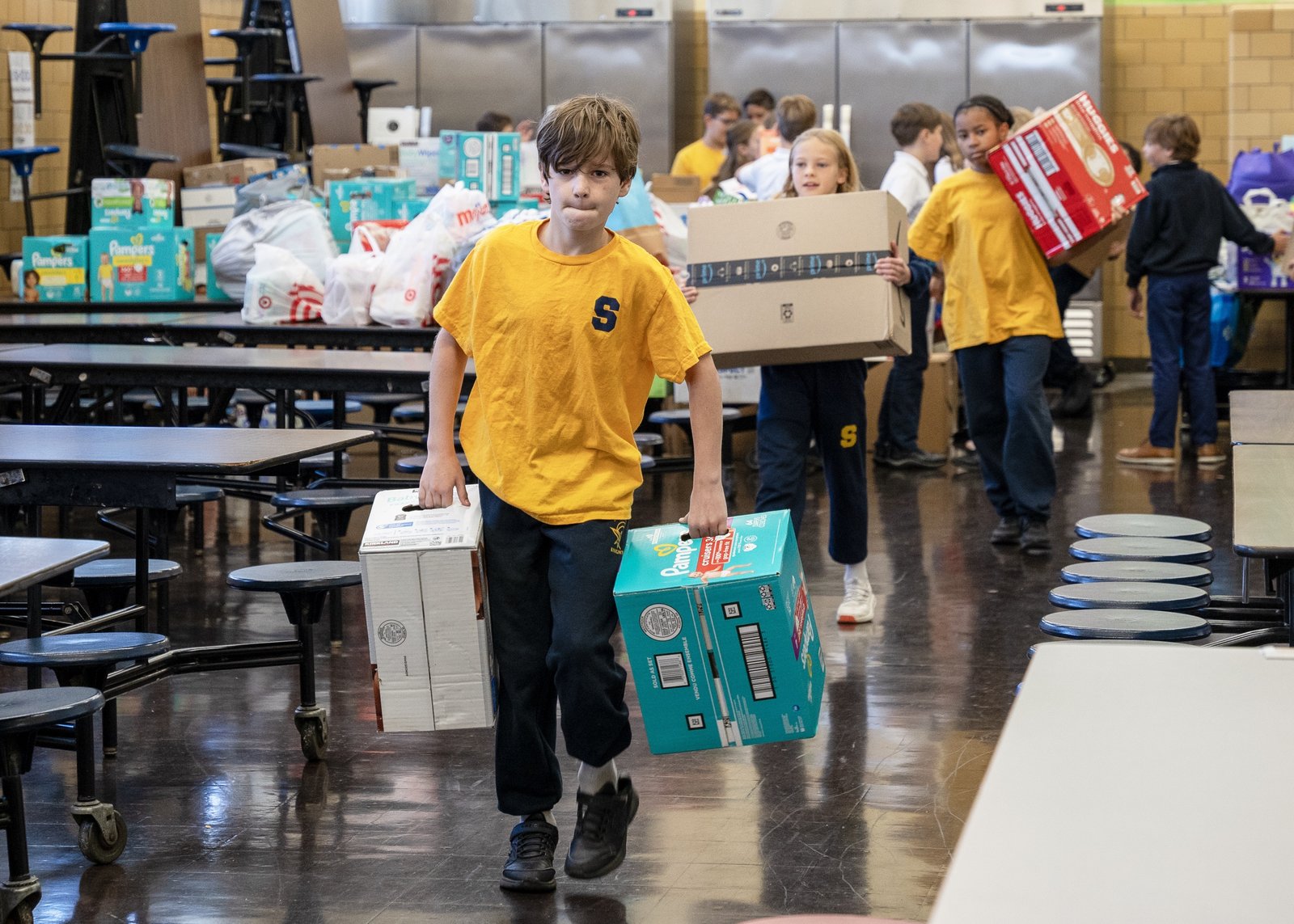
“At Shrine, we have (ages) 3-year-old to 11-year-old, and our call and our mission as disciples of Christ and as a Catholic school is to put our children in a position to experience our faith through service learning,” Wisniewski said. “We are going to do our part to help those in need, and we are going to fulfill our mission as Catholics. The kids are active participants in this process.”
In hard-hit Asheville, N.C., St. Clare of Montefalco parishioner Barbara Koster works 7 a.m. to 7 p.m. shifts at one of the American Red Cross’s emergency shelters and interacts daily with displaced persons and flooding victims.
Koster joined the Red Cross following her husband’s passing in July 2023. Already retired, she is a longtime member of the Society of St. Vincent de Paul at her parish, but she was looking for other ways to fill her time. At the beginning of 2024, she began training to be part of a disaster action team. On Sept. 30, she volunteered to help with Hurricane Helene disaster relief, and by Oct. 1, she was on her way down for a two-week deployment.
After reporting to the Red Cross regional headquarters in Charlotte, Koster was sent to Asheville, where she was immediately put to work at the Western North Carolina Agricultural Center, which has been converted into a shelter.
“It was amazing, really, to see so many cots all lined up and just filled with individuals who had been plucked out of the storm and brought to this huge place,” Koster said. “People are assigned to cots, and they are really probably the more marginalized people of society. The people who had the means to get out of the storm would have gone to a second home, or to relatives further north.”
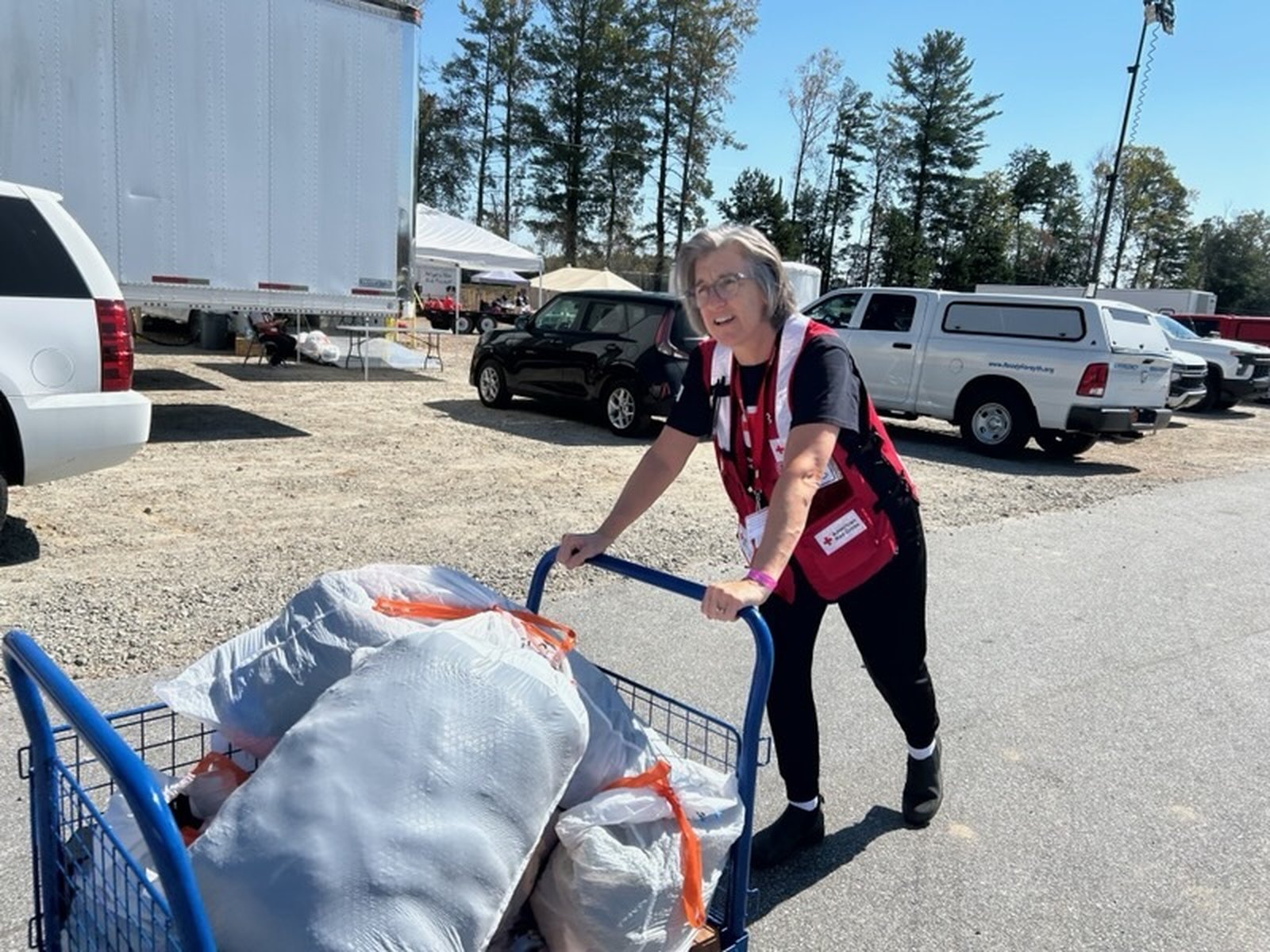
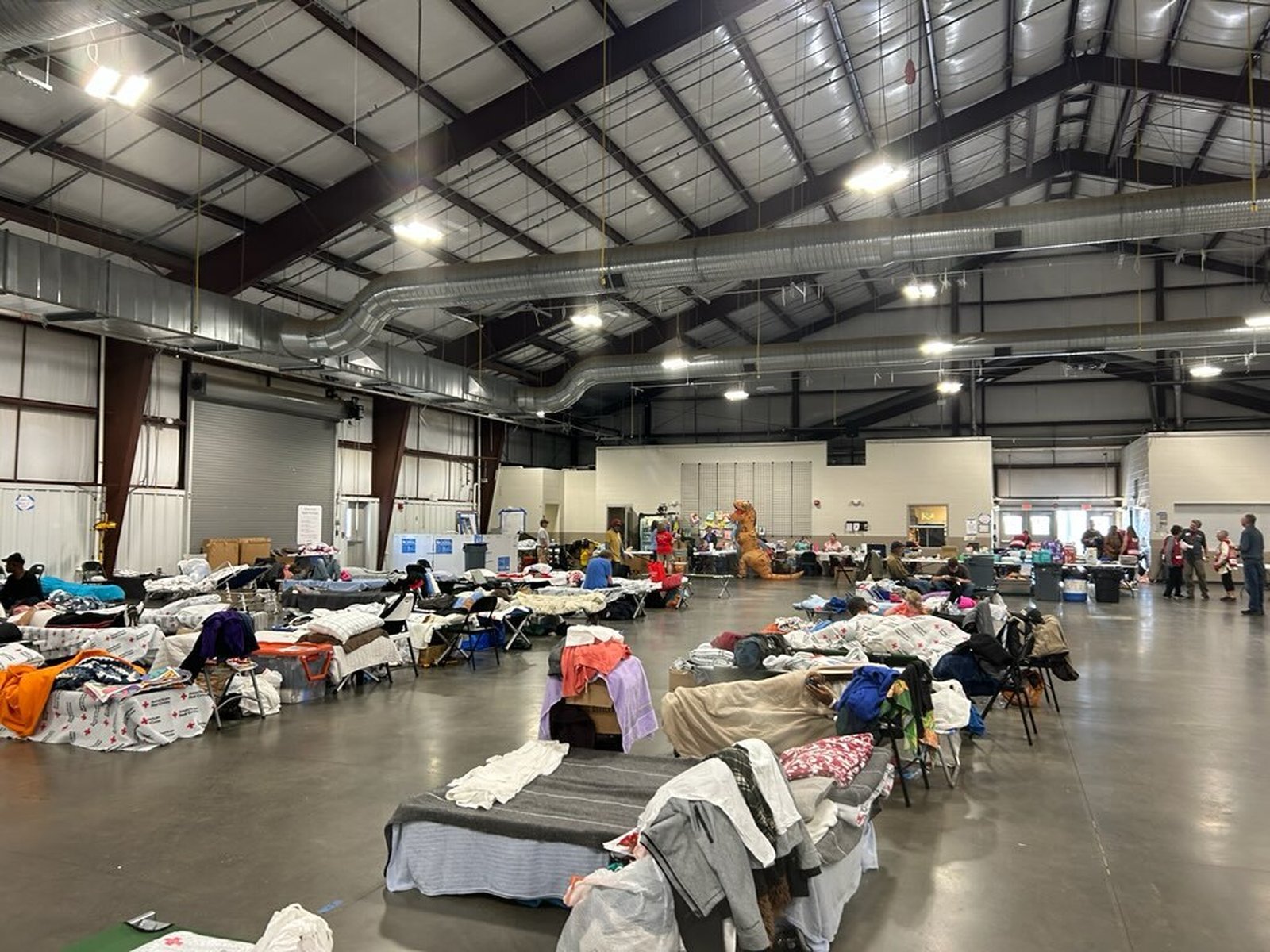
The mountains weren’t prepared for a hurricane, Koster explained, and many of the people living in the shelter were living on the riverbank when the gushing water quickly rose and flooded the area, sweeping houses off their foundations and cars down the stream.
"Many of these people are struggling and will continue to struggle,” Koster said. “There are four brothers who are in the shelter together. They live together in a house and had two cars between them; one got swept away in the flood, and the other barely runs, but they went out (to their house) with FEMA the other day to see what compensation they might get (for the damages).
"One brother showed me pictures of their house, and it is heartbreaking," Koster continued. "He said, ‘Oh yeah, there is my bed upside down, and the whole house moved 75 yards from where it was off the foundation.’ He said, ‘I saw my computer in that muck, but it was in two feet of mud, and I saw the edge of it sticking out, and I know there was stuff on it that I might need. I just didn't have the will to rustle it out of the mud and try to figure out if it would work.’"
Koster said she and other volunteers help where they can by assisting shelter residents with phone calls and figuring out what social services or buildings are open. Still, the most important thing they can offer is a listening ear.
“A lot of times, all you can do is just hear them — listen because we can’t solve it all, and a lot of it is unsolvable right now,” Koster said. “As a volunteer just assigned to the dorms, yes, we help people check in and make sure that they can find their cot and a couple of blankets, but we also just walk around and hear their stories and let them talk about what happened on those days and grieve about what they are missing and what they lost.

“Everybody wants to be heard and needs to be heard, so that’s really what I feel drawn to do, and I feel like I am reasonably good at that, to be able to ask questions and help them process what happened and work toward the next steps.”
Koster said many of those impacted by the hurricane are attempting to carry on with the routines of daily living: some are returning to work, only coming to the shelter for sleep at night. While life goes on, Koster anticipates that the shelter will be open for a long time to come and that it will take a while for the impacted areas and people to get back on their feet.
LaCroix added that the universality of the Church family compels Catholics in Michigan to help those in the impacted areas 500 miles away.
“The Catholic Church is one large family globally, and when one part of the family hurts, we are all part of the body of Christ, so we have to help the other part of the body,” LaCroix said. “The kids at Shrine are being taught that (those impacted by the hurricanes) are our family, and when family needs help, you help family."
Donations for Hurricane Support Recovery Efforts
The Archdiocese of Detroit encourages Catholics to consider donations to Catholic Charities USA, the official disaster relief agency of the Church in the United States. 100% of donations made via the link go to support recovery efforts.
Copy Permalink
Christian service



